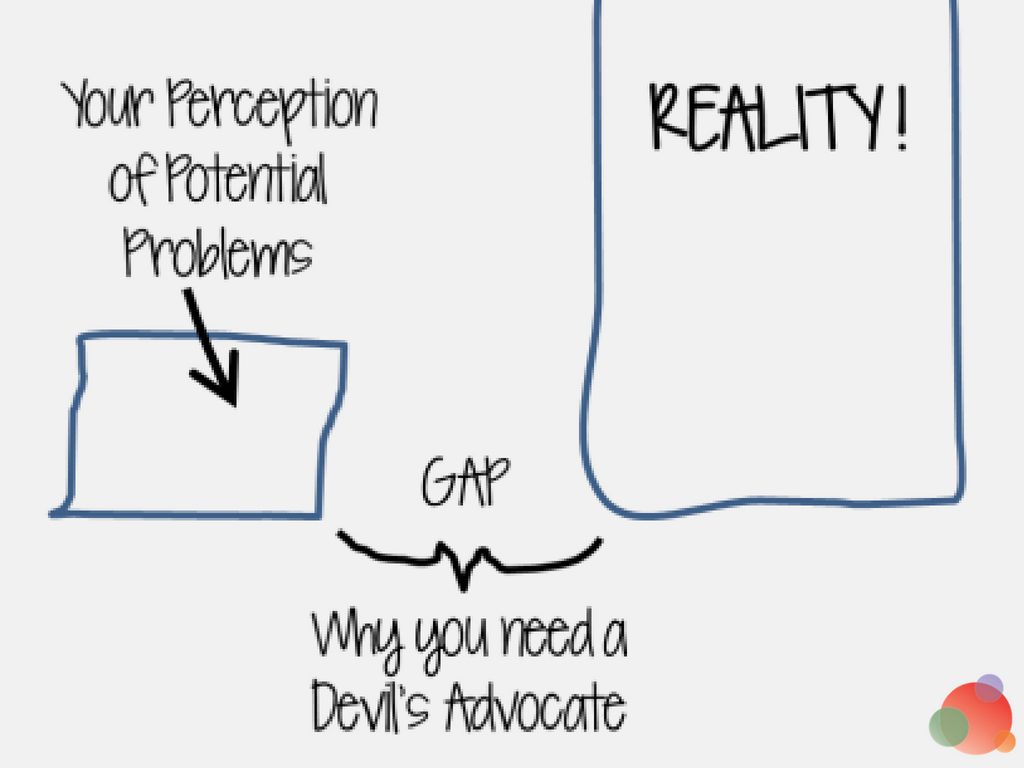 Yesterday, Ken Jacobs wrote about how leaders can lead the next generation of leaders coming up in the organization.
Yesterday, Ken Jacobs wrote about how leaders can lead the next generation of leaders coming up in the organization.
Leadership is hard.
While it does come naturally to some, it’s still a skill that must be honed every day.
The challenge with leadership is you are leading people and no one person is the same.
They’re not motivated by the same things. They don’t work for the same reasons. And they have different goals and visions.
And, if the business is yours, it’s even more challenging.
That’s why, when you hire, you must find people who are going to play devil’s advocate.
They aren’t going to say “yes” to every decision you make. Rather, they become your “no” people.
These are people you can trust to help you step out of your own head, and clearly examine the situation objectively.
They will not only tell you where your weak spots might be, but help you actively see them on your own.
They become your personal devil’s advocate.
Having a Devil’s Advocate is Hard
This is advice every leadership book and coach in the world gives.
- Don’t hire people who are going to tell you what you want to hear.
- Hire people who are smarter than you.
- Create a team of people who are going to push back and play devil’s advocate.
There is a difference, though, in people who are disagreeable and those who play devil’s advocate.
The first is not necessary and believe me when I say, they spoil your culture and morale.
If they’re a trusted part of your organization, they know when to play devil’s advocate and when not to.
They know how to choose their battles, so to speak.
Still, we see time and again that “leaders” surround themselves with people who say what they want to hear.
(The White House is a prime example of this.)
It’s not easy to hear your baby is ugly, your idea is dumb, or the campaign you’ve spent the last six months on won’t work.
That’s exactly what the devil’s advocate will do.
They will tell you your baby is ugly…and then they will help you figure out how to make it pretty.
You waffle between wondering why things have to change when it’s been working great all along and wondering why you didn’t make the suggested changes (or think of them yourself) a zillion years ago.
Sometimes the devil’s advocate wants to make change for change sake and sometimes they want to make change because it’s the right thing to do.
As the leader, you have to figure out the difference and either push back or set your ego aside and listen.
Really listen.
And then take action.
Your Baby is Ugly
So how do you decipher between change for change sake and change that will make a difference?
First, put your ego aside. It’s not easy. You can do it. I promise.
You may cry or get really frustrated or get angry. You may even have to drown your sorrows in a bottle of wine (not that, you know, I’ve ever done that).
Then you’ll pull on your grown-up pants and follow these steps:
- Listen. This is the hardest part because you’ll listen and you’ll feel yourself getting defensive. You cannot do this. You have to listen without formulating your response. Listen without interruption. Listen and then think. Sometimes you may have to go away for a day or two before you respond.
- Back up your position. If you disagree with the devil’s advocate, back up your position. Tell them why. Perhaps you have knowledge about the business they do not have. Perhaps you’ve tried their suggestions in the past and they didn’t work. Begin a conversation about it and let them tell you why they think it will work this time.
- Ask yourself, “Does it go to our vision?” Sometimes the devil’s advocate will suggest things that are really great ideas, but take you away from your vision. Restate the vision and get them on board. But if it does go to the vision, it’s probably a good thing to consider.
- Yes, and… I learned this trick from reading Tina Fey’s Bossypants (which is a great book, if you haven’t read it). It’s a trick they teach you in improv. Rather than saying “no” or “but,” agree with the suggestion and add your two cents. This creates a collaborative discussion instead of a defensive and frustrating one.
- Concede defeat. There are going to be times—more times than you’re probably willing to admit—that you’ll have to concede defeat. The devil’s advocate will have “won” and you have to give them their gold medal.
Leadership is Not About You
Leadership is more about conceding control, motivating people to succeed and coaching them to be their very best.
It’s not about your way—and only your way.
It’s not about your ideas—and only your ideas.
If you can build collaboration and consensus, and an organization that is respectful, but full of trusted devil’s advocates, you will win.
Your culture will be an enviable place, which helps in retention and recruiting.
If you can’t do that because your ego is in the way, no one will win.